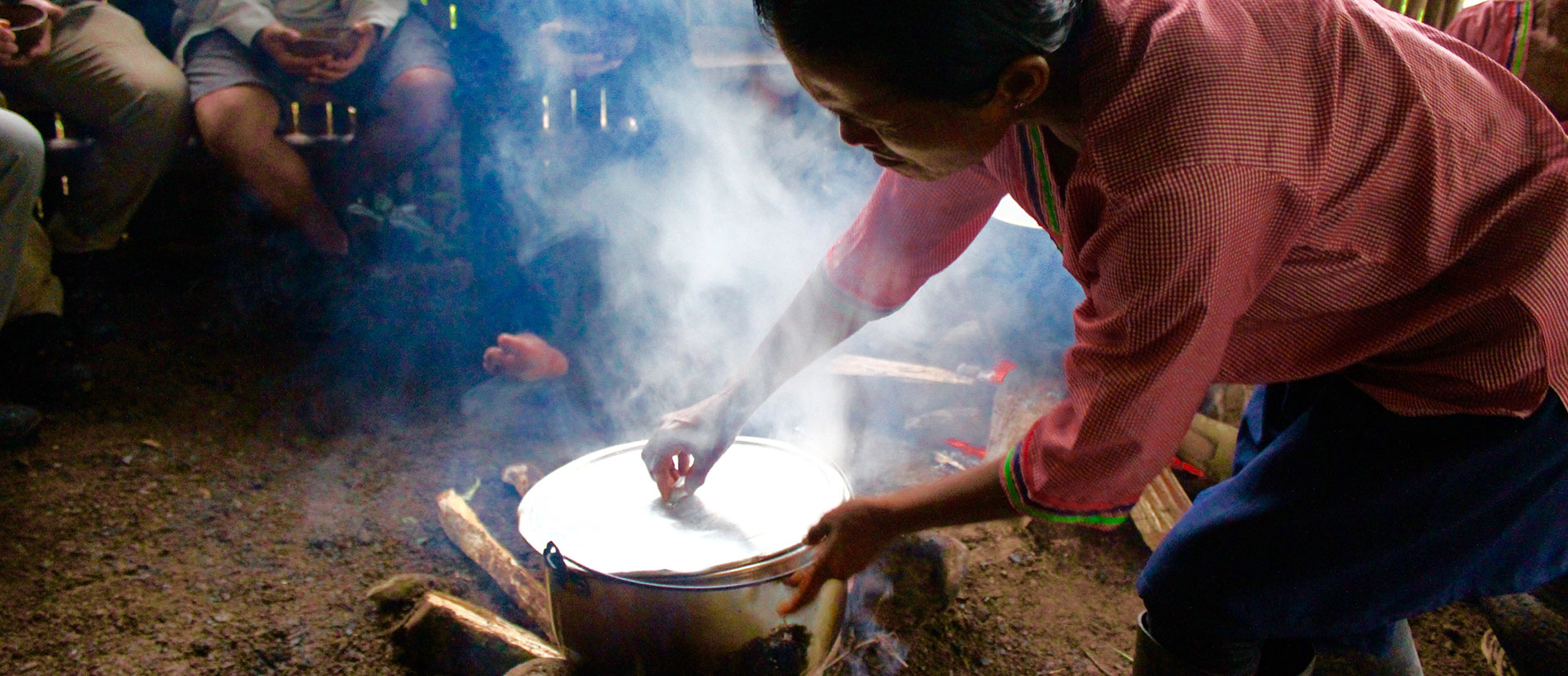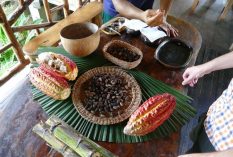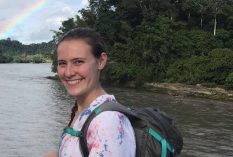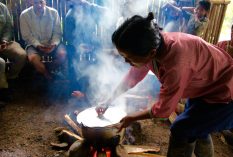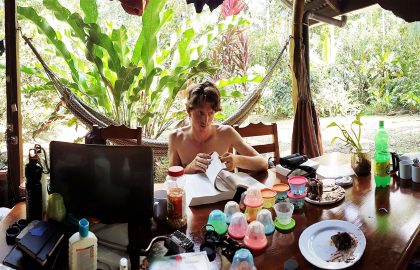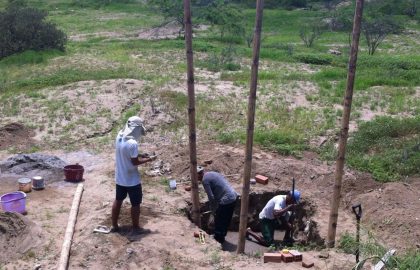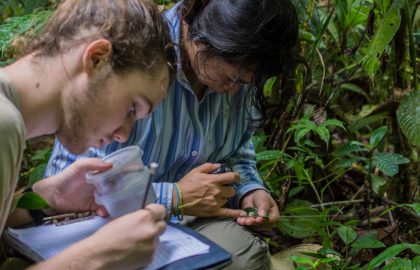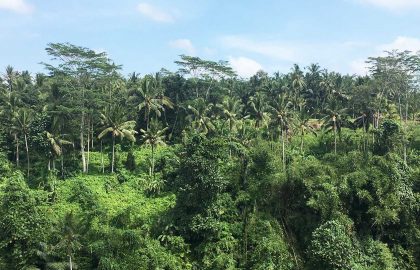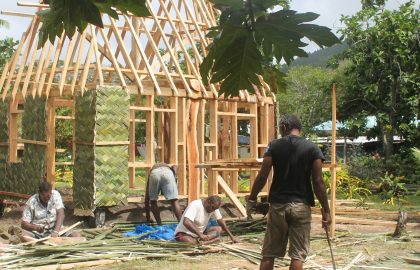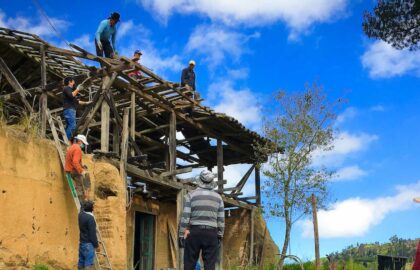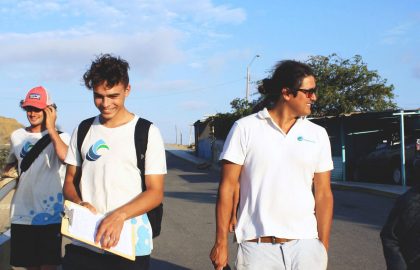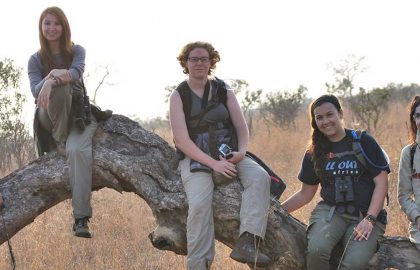Description
Location: Tena, Ecuador
Duration: Minimum 4 weeks (flexible for min. 2 weeks depending on intern’s qualifications), Maximum 1 year
Start Dates: Project is ongoing, and you can join at any time, depending upon availability
Cost: $550 for the 1st week + $400 for each additional week (2 month minimum is recommended) – see ‘Costs’ tab for further details
Benefits:
- Learn about Ecuadorian culinary arts, with a focus on the unique interculturality and sustainability of the field
- Sample and learn about some of the thousands of fruit, vegetable, nut, spice, and insect species
- Collaborate with farmers on projects to diversify and add value to their agroforestry farms, and research domestic and international markets for local products
- Opportunity to organize Farm to Table (Forest to Table) meals to help rural families and associations showcase the riches of the forest and educate others about traditional Amazonian foods
- In addition to culinary arts and agriculture, opportunity to learn about indigenous rights, ecotourism, Fair Trade and organic certifications, social entrepreneurship, and community tourism projects
- Research & dissertation support available with partner organizations and universities, if requested.
- Keywords: culinary arts, forest foods, sustainable agriculture, organic agriculture, herbalism, ethnobotany, clinic, hospital placement, internship, medicine, emergency medicine, traditional healing, indigenous rights, agroforestry, biodiversity, sustainable development, research, community development, economic development, climate change.
Introduction
The Amazon rainforest is one of the most biodiverse ecosystems in the world with over 40,000 plant species and 2.5 million insect species! Also, there is said to be over 3,000 edible fruit species. Many indigenous communities have recipes for preparing fish, meat, beverages, fruits, and starches that were passed down through generations.
Many farming families, organizations, and community associations are working hard to re-value and preserve traditional Amazonian dishes while also adding a modern, culinary flare to the food. In this internship, interns learn about the endless amount of edible species that exist in the Amazon [including insects, fruits, herbs, and spices] and how these products can support local economies in an environmentally-friendly and sustainable way.
Daily Life
Internships begin with an orientation in the city of Tena. After, interns spend the first few weeks getting to know their host family and internship placements. Depending on the needs of the placement, potential internship activities include:
- Learn from local farmers and cooks about the intersection between ancestral farming/hunting/fishing practices and how they connect to modern cuisine and income-generation projects
- Identify edible and medicinal plants and understand their importance in traditional cooking and medicine
- Prepare traditional dishes with locals and experiment by adding different flavors and spices
- Contribute to work in the chakra (traditional agroforestry farm) by planting, weeding, and harvesting products
- Create and/or clear trails in medicinal plant gardens or chakras with locals
- Support eco-toursim projects and guide visitors as they learn about forest foods, traditional Amazonian dishes, and agroforestry systems
- Research local Amazonian products and national and international markets where they can be sold
Interns live with host families, allowing them to forge meaningful connections with locals during their time in the Amazon. Most host families live in rural communities close to the forest, and many have their own agroforestry farms and invite interns to join them when they plant, weed, and harvest Some of the amazing products you will get to learn about and experiment with include ishpingo (Amazonian cinnamon), ajo de monte (wild garlic), sacha inchik (Amazonian wild peanut), chontacuro (grub), chonta (a palm fruit), and locally-grown tumeric and ginger,
An average day for a forest foods and culinary arts intern looks like:
***NOTE: Schedules can differ based on the intern’s placement and projects interns collaborate on. The following sample schedule is based off of past interns’ experiences.***
- Wake up and have breakfast with host family (***If you are with a very traditional indigenous family, you can wake up with them at 4 or 5am and share in the ritual of drinking guayusa tea as a family***)
- Head to the chakra (agroforestry farm) around 7:30/8am
- Return home around 10/11am
- Free time for independent research, prepare lunch with host family, or activities with host family, community members, or chefs
- Lunch with host family (***OR: When interns are in the field they can buy lunch or bring a packed lunch***)
- Continue research or get involved with culinary/agroforestry activity [e.g. prepare dinner with host family, learn to make chica (traditional beverage), assist with cooking for tourism activities, set-up a test kitchen to experiment with different flavors and spices, etc.]
- Return home around 5/6 pm for dinner with the family (***We encourage interns to spend as many evenings and weekends as possible with their host families to make the most of their immersions, learn about the culture, and practice their Spanish***)
- Other activities to get involved in after work and on the weekends: sports, clubs, teaching English, meeting up with other interns, going on weekend trips to nearby tourist destinations, swimming in rivers, rafting, hikes to waterfalls and swimming holes, chocolate-making
Interns need to bring extra spending money for their transportation, meals not eaten with the family, and activities and travel outside of the program. The cost of living and transportation costs are explained in more detail in the intern manual provided to incoming participants to help them calculate how much extra money they should bring.
***NOTE: Specific projects change throughout the year depending on the needs of our partner organizations. The projects interns work on during their internships are based on the organization’s’ immediate needs and workflow.***
Travel & Accom.
The best airport to fly into is Mariscal Sucre International Airport (UIO) in Quito, Ecuador’s capital. Interns need to arrive to Quito no later than the night before their orientation begins. Quito is only 4 hours from Tena, the main city in the Napo Province. On the morning of orientation, a staff member schedules a taxi to pick interns up and bring them to Tena for training; they just have to pay the driver upon arrival.
Interns stay in Tena during orientation, and the cost of the accommodation is provided. The rest of the program is spent living with a local host family. This is an amazing opportunity to immerse in the local community, learn about the culture, and practice Spanish. Host families provide 3 meals per day, bedding, and a place to do laundry.
Requirements
Interns are expected to finance their own travel costs (international and while in Ecuador).
Other requirements include:
- Minimum 4 weeks commitment, recommended 8-12 weeks (flexibility for a minimum of 2 weeks however this could affect the price)
- Academic and/or professional experience in the fields of culinary arts, agriculture, sustainable business, anthropology, sociology, biology, or a related field
- Full travel & medical insurance
- Necessary vaccinations
- Necessary visa costs
Costs
$550 USD for the 1st week, $400 USD* for each week thereafter.
* Currency conversions are approximate. Use xe.com for up to date currency conversion rates
** All payments incur a 5% bank transfer fee
*** Places are confirmed with a 1 week deposit.
What’s Included:
- Accommodation during orientation
- Accommodation and 3 meals a day with a host family. Includes a private room, bathroom, all bedding, and place to do laundry
- Guided pre-departure preparation
- In-country orientation that addresses risk management, culture shock, cross-cultural adaptation skills, history/culture/politics of Ecuador and the Amazon, team-building, goal-setting, and more
- 1:1 check-ins every 2 weeks
- 24/7 emergency support
- Network of doctors, therapists, Spanish tutors in-country
- Access to network of experts and information databases for research support
- Exit interview and end-of-program reflection
- Alumni group and future references
What’s not included:
- Costs of flights and visa
- Costs of vaccinations
- $15 per day for food during orientation training
- Personal transportation
- Any other activities outside of scheduled program activities (white water rafting, yoga, workshops, guided jungle hikes, etc.)
Full assistance will be provided in getting all these arranged if you choose our Premium Support.
Premium Support Upgrade
We understand there’s a great deal to plan and organise for your trip. When booking a Placement, many of our participants choose to purchase our Premium Support Upgrade to benefit from the expertise, knowledge and experience of our Project Coordinators. We can provide the personal advice you need to ensure your trip is organised with excellence and planned with efficiency; ensuring the very best experience possible. Read more about how we can help you.
Tena, Napo, Ecuador
Note: Map coordinates are approximate

